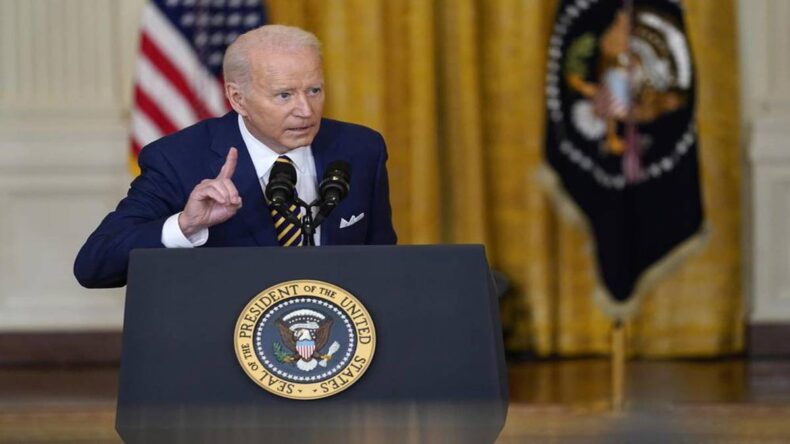Ukraine Crisis: As the US seeks an open UN Security Council meeting to discuss the Ukraine crisis,
President Joe Biden has warned Ukraine’s president that there is a “clear probability” that Russia could take military action against Ukraine in February, according to the White House.
The revelation comes as the Kremlin sounded gloomy on Thursday, saying there was “no reason for confidence” in resolving the situation after the US rejected Russia’s primary requests for the second time this week.
Russian authorities insisted that discussion to resolve the conflict was still feasible.
Still, Biden issued another strong warning amid mounting fears that Russian President Vladimir Putin could approve a new invasion of Ukrainian land in the not-too-distant future.
According to the White House, Biden’s statements to Ukraine’s Volodymyr Zelenskyy in a phone call heightened concerns that administration officials have been raising for some time.
White House announcements on Ukraine Crisis
“President Biden has stated that the Russians could invade Ukraine in February,” according to White House National Security Council Spokesperson Emily Horne.
“He has publicly stated this, and we have been warning about it for months.”
The US representative to the UN, Linda Thomas-Greenfield, said earlier on Thursday that the Biden administration wants to talk about Russia’s “threatening behaviour” against Ukraine Crisis. She said
“Russia is committing other destabilising measures in Ukraine, posing a clear threat to world peace and security as well as the UN Charter,”.
“This is not the time to wait and see what happens. We need the council’s entire focus right now, and we’re looking forward to a focused and deliberate conversation on Monday.”
Russia US relations deteriorate.
After Moscow placed tens of thousands of troops on its border with Ukraine, Russia and the West have deteriorated. The Kremlin has denied any preparations to invade.
Still, it did demand broad security guarantees last month, including pledges that Ukraine will never be included in the US-led NATO military alliance.
The US and the Western alliance, as expected, forcefully rejected any compromises on Moscow’s primary concerns on Wednesday, stressing that ally troop and military equipment deployments in Eastern Europe are non-negotiable.
The US pointed to areas where some of Russia’s concerns could be addressed, perhaps paving the way for de-escalation.
On Thursday, Kremlin spokesperson Dmitry Peskov told reporters that the US answer – and a similar one from NATO – offered “little room for optimism,” but that
“there are always opportunities for continuing a dialogue, it’s in both our and the Americans’ interests.”
Foreign Minister Sergey Lavrov also hinted at a dialogue beginning, stating that the US answer contained certain aspects that could lead to “the start of a meaningful discussion on secondary problems.”
But, as Lavrov pointed out,
“the paper contains no good response on the major issue” —
Moscow’s demands that NATO not expand and refrain from placing weapons that could pose a threat to the country.
All eyes are on Putin now, who will decide how Russia will respond amid fears that Europe may be thrown into another conflict. If the West does not comply with the requests, he has threatened unspecified “military-technical actions.”
Edited by- Kritika Kashyap
Published by- Satheesh Kumar













